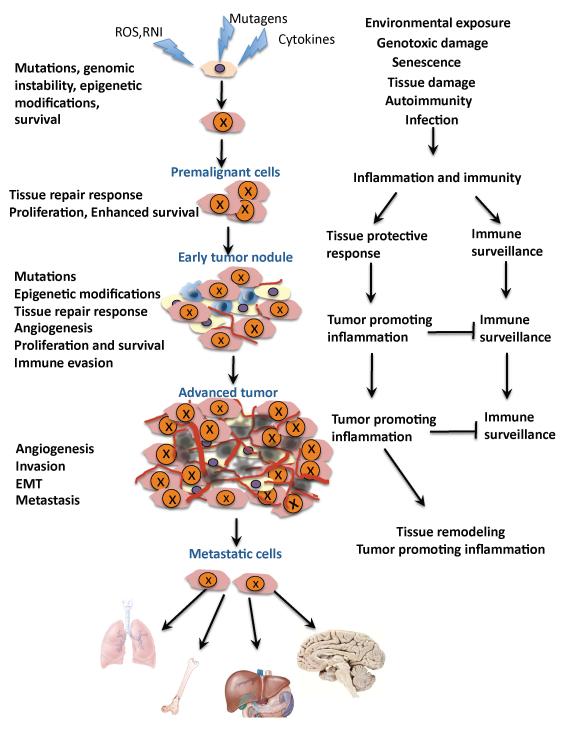Figure 2.
The multifaceted role of inflammation in cancer
Inflammation acts at all stages of tumorigenesis. It may contribute to tumor initiation through mutations, genomic instability, and epigenetic modifications. Inflammation activates tissue repair responses, induces proliferation of premalignant cells, and enhances their survival. Inflammation also stimulates angiogenesis, causes localized immunosuppression, and promotes the formation of a hospitable microenvironment in which pre-malignant cells can survive, expand, and accumulate additional mutations and epigenetic changes. Eventually, inflammation also promotes metastatic spread. Mutated cells are marked with “X”. Yellow - stromal cells, Brown - malignant cells, Red - blood vessels, Blue - immune and inflammatory cells. Epithelial-mesenchymal transition, EMT; reactive oxygen species, ROS; reactive nitrogen intermediates (RNI)

